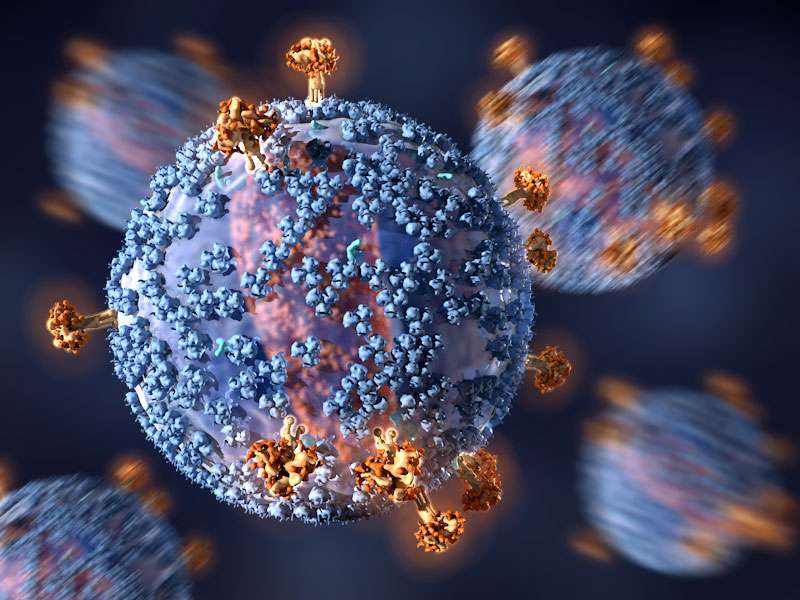Maternal HIV status may disrupt normal microbiome development in uninfected infants

A study led by researchers at The Saban Research Institute of Children's Hospital Los Angeles (CHLA) suggests that maternal HIV infection influences the microbiome of their HIV-uninfected infants. Their findings, reported online in the journal Science Translational Medicine on July 27, may account for some of the immunological and survival differences seen these children.
Worldwide, more than a million infants are born annually to HIV-infected mothers. The vast majority of these children escape HIV infection, but do not escape harm. These HIV exposed, uninfected children experience nearly twice the mortality of children born to women without HIV, though the reasons have remained unclear.
Breastfeeding conveys health benefits to both HIV-infected and HIV-uninfected infants. So breastfeeding - in combination with maternal antiretroviral therapy - is the recommended form of feeding for HIV-positive mothers in low resource settings.
The CHLA scientists and their colleagues hypothesized that the changes in both the microbiome and breast milk human milk oligosaccharide (HMO) composition in HIV-infected mothers may be affecting their infants. HMOs are the third largest constituent of human milk, but they are not digested; rather HMOs appear to provide nutrition to the infant's microbiome, in turn conditioning the child's developing immune system.
As establishment of a healthy microbiome in infants greatly influences the development of a healthy infant metabolism and immunity, it may be that the altered microbiome of uninfected but HIV-exposed infants accounts for their increased morbidity and mortality rates.
To test this theory, the scientists enrolled 50 mother-and-infant pairs from Port-au-Prince, Haiti, evenly split between HIV-positive and HIV-negative mothers, and looked broadly at the microbiomes of sample sites from each pair.
"In contrast to the mostly consistent microbial communities identified in all of the mothers, the microbiomes of HIV-exposed, uninfected infants were strikingly different from infants born to HIV-negative women in the same community." said first author Jeffrey M. Bender, MD, of the Division of Infectious Diseases at Children's Hospital Los Angeles. He added that the bacterial composition of infant stool was the most altered on the basis of the mother's HIV status.
The researchers observed that the bacterial communities of mothers with and without HIV infection in the cohort were relatively similar. Therefore the dysbiosis, or unhealthy change in the normal bacterial ecology of the gut seen in their infants, was not completely explained by the maternal-to-infant transfer. Instead, it appears that changes found in the HMO content of the HIV-affected mothers' milk may have had dramatic downstream effects on the establishment of the infants' microbiome.
"As a result, the relatively immature and dysbiotic microbiome could potentially compromise development of the infant's immune system," said Bender.
The researchers propose that it may be the combination of slight disturbances in the HIV-infected mothers' own microbiome and differences in the HMO composition of breast milk that may explain changes in their infants' microbiome.
Providing infants with important beneficial bacterial (probiotics) or potentially specific milk oligosaccharides (called prebiotics) could potentially improve long-term outcomes according to the scientists, though this remains to be investigated.
More information: "Maternal HIV infection influences the microbiome of HIV-uninfected infants," stm.sciencemag.org/lookup/doi/ … scitranslmed.aaf5103
















